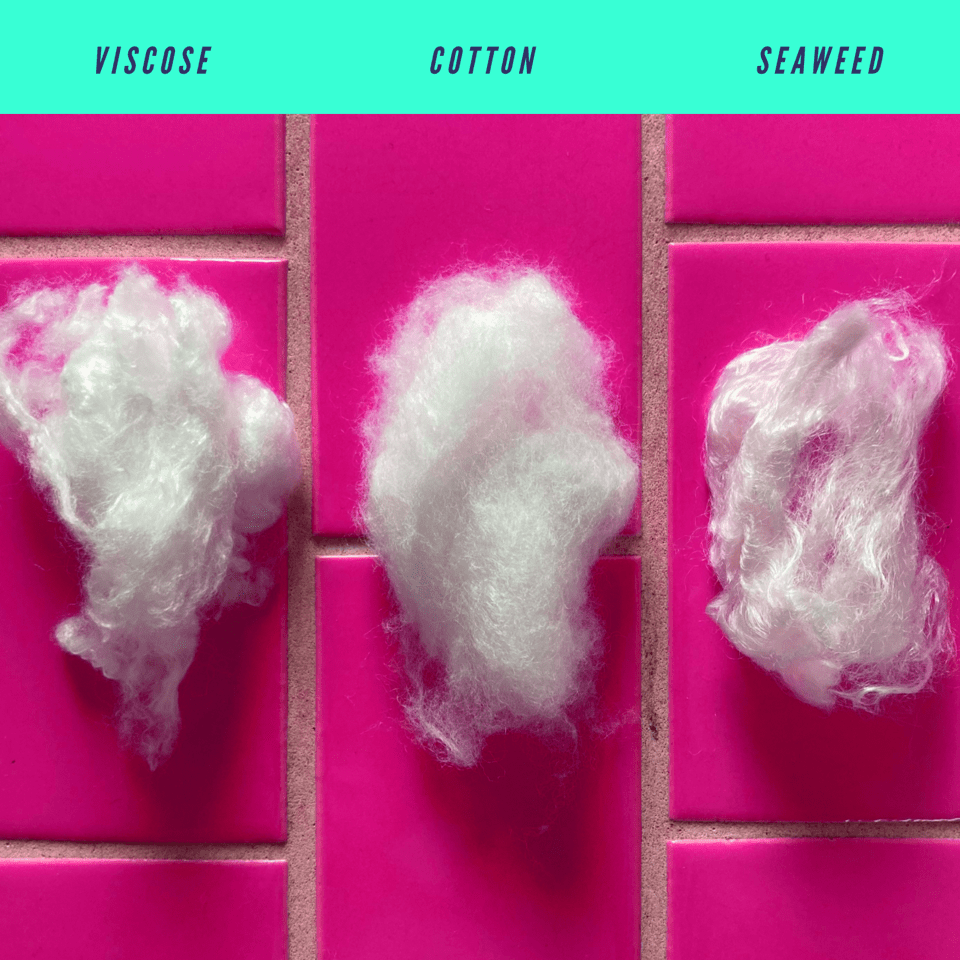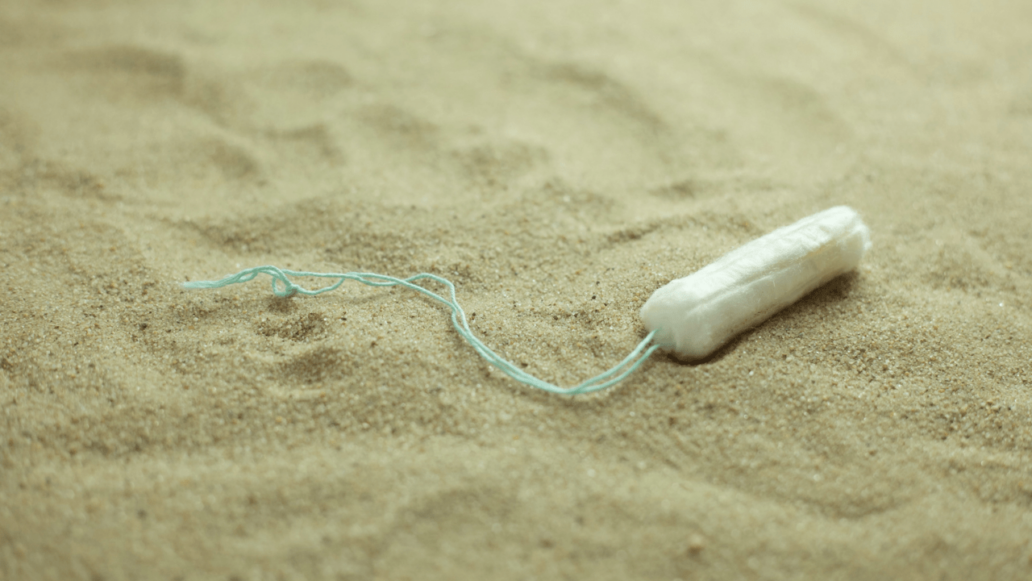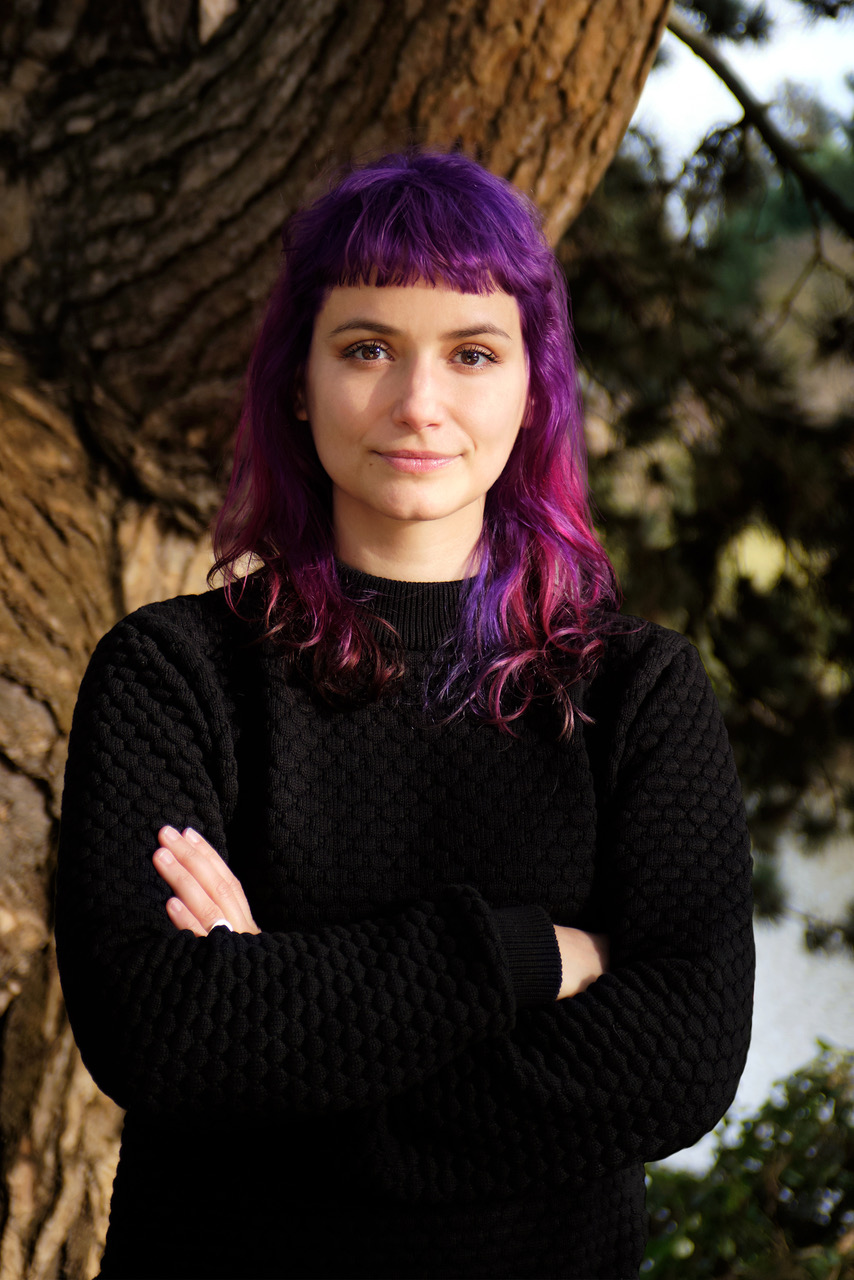Good for the planet
What if we told you that pretty soon, we’ll all be able to use tampons that actually benefit the ocean and people at the same time? Believe it or not – it’s happening! Enter the Kelpon – a tampon made from nature’s most powerful decarbonization tool: seaweed.
Although forests are known as the best natural source for carbon capture, studies show that seaweed is by far the most efficient natural way of absorbing carbon dioxide in the atmosphere. Kelp, a large, brown seaweed typically found in cold, coastal waters grows up to 61 cm (2 ft) per day and like land-based plants, absorbs CO2 through photosynthesis – but at 50 times the rate. As if that’s not enough, seaweed contributes to ocean habitat restoration, and is a useful tool in reversing acidification caused by rising ocean temperatures.
Sounds great, right? Well, there’s a catch – but it can work to our benefit. Unless harvested or sunken to the depths of the ocean, the carbon captured by the seaweed will re-enter the atmosphere as it rots. To reap the benefits of farming seaweed, it must be harvested, generating lots of useful raw material that can be transformed into product. Several remarkable seaweed-based innovations that use this product are now coming to market and one of our favourites is the kelpon by Vyld. Before we talk about the company, let’s discuss the opportunity.

The Need
People who menstruate do not have an abundance of choice when it comes to sustainable products. A person who menstruates uses on average between 5,000 and 15,000 disposable menstrual products in their lifetime. In the US alone, this means that around 12 billion pads and 7 billion tampons are thrown away each year. Generally containing plastics, each one of these items (wrappings and applicators included) takes between 500 to 800 years to decompose. Best case, these plastics end up in landfill, but unfortunately and far too often, tampons and applicators are flushed down the toilet. When sewer systems fail, these plastics end up in the ocean, harming ecosystems and causing health complications or death to the animals that eat them. Even though the effects of menstrual product waste is prominent, the real environmental impact comes from the processing of raw materials that go into their production.
With the kelpon, all these aspects are avoided, and menstruating people can’t wait. According to a survey by National Geographic, close to 60 % of menstruators asked were open to switching to a more sustainable menstrual product, with another 20 % having already taken the leap. This is a massive shift in the way people are thinking about dealing with their periods.

Good for people who menstruate
The kelpon isn’t just great for the environment, it’s also great for you. Kelp has a number of health benefits; it’s allergy friendly, anti-inflammatory, and has been used for decades in medical application. Kelp is extremely absorbent, and is 100% bio- and marine-degradable making for a high performance product that’s easily disposed of in an eco-friendly way.

Why we invested
At The Case for Her, we love to invest in innovative yet underfunded opportunities. Much like menstrual health, the seaweed industry is in massive need of funding and political endorsement. We’re excited to support Vyld alongside catalysts like Purpose Ventures and Tech4Eva and expand our portfolio into sustainable menstrual products. Vyld (pronounced “wild”) checks all the boxes of an irresistible investment in scalable and sustainable products that consider the complete lifecycle from production to disposal. Berlin-based founder and trailblazer Ines Schiller is a certified marine guide, neuroscientist and social entrepreneur. She has partnered up with Melanie Schichan, CMO, with a solid background in sales – making for a small but mighty Vyld team with an ocean of potential ready to blow tampons out of the water!

Click the button below to learn more about Vyld and stay up to date by following @Vyldness on Instagram!


